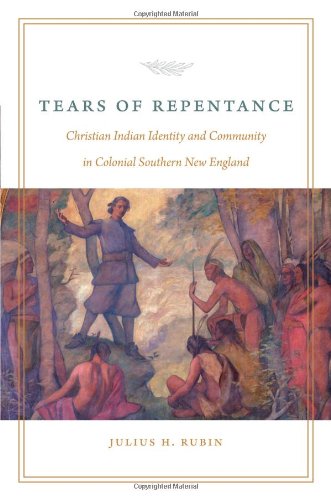

Most ebook files are in PDF format, so you can easily read them using various software such as Foxit Reader or directly on the Google Chrome browser.
Some ebook files are released by publishers in other formats such as .awz, .mobi, .epub, .fb2, etc. You may need to install specific software to read these formats on mobile/PC, such as Calibre.
Please read the tutorial at this link: https://ebookbell.com/faq
We offer FREE conversion to the popular formats you request; however, this may take some time. Therefore, right after payment, please email us, and we will try to provide the service as quickly as possible.
For some exceptional file formats or broken links (if any), please refrain from opening any disputes. Instead, email us first, and we will try to assist within a maximum of 6 hours.
EbookBell Team

4.8
24 reviewsTears of Repentance revisits and reexamines the familiar stories of intercultural encounters between Protestant missionaries and Native peoples in southern New England from the seventeenth to the early nineteenth centuries. Focusing on Protestant missionaries’ accounts of their ideals, purposes, and goals among the Native communities they served and of the religion as lived, experienced, and practiced among Christianized Indians, Julius H. Rubin offers a new way of understanding the motives and motivations of those who lived in New England’s early Christianized Indian village communities.
Rubin explores how Christian Indians recast Protestant theology into an Indianized quest for salvation from their worldly troubles and toward the promise of an otherworldly paradise. The Great Awakening of the eighteenth century reveals how evangelical pietism transformed religious identities and communities and gave rise to the sublime hope that New Born Indians were children of God who might effectively contest colonialism. With this dream unfulfilled, the exodus from New England to Brothertown envisioned a separatist Christian Indian commonwealth on the borderlands of America after the Revolution.
Tears of Repentance is an important contribution to American colonial and Native American history, offering new ways of examining how Native groups and individuals recast Protestant theology to restore their Native communities and cultures.